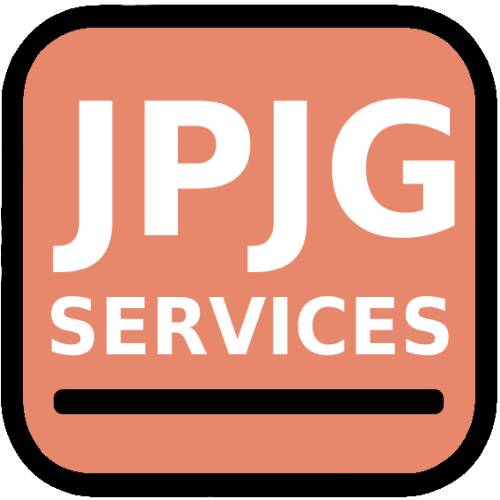Billions of people have been affected by the Coronavirus, one way or another. They’ve been quarantined, told to stay at home, or simply socially distanced themselves. In countries around the world, normal life has come to a stop. Where possible we work from home, we home-school our children, events are postponed, and almost all exercise and leisure activities that take place anywhere else than our own home are cancelled.
It really is a weird time. There’s a lot to say about the (negative) effects of Covid-19 on our health and healthcare, economy, and society at large. But to shine a small little light in the darkness that is our current situation (and news intake), this crisis also offers us time to reflect. Specifically, it allows us to consider whether or not we want to change the world we live in, and how. Or in other words: do we want to push the coronavirus reset button?
Before Corona and After Corona
As a friend of mine put it: there is BC and AC — before and after Corona. While he meant it as a joke, there is some truth in this. Specifically, life is very different before and after social distancing and other (governmental) regulations were put into place. After the virus is eradicated, we may well go back exactly to what we were doing before. However, we could also use this opportunity to re-think and re-shape our society AC.
There is BC and AC — Before Corona and After Corona
And that is what I mean with the coronavirus reset button. In a way, this virus has provided us with an opportunity to see what a different life looks like on different levels.
Specifically, we can ask us ourselves a range of questions. In this article, I will cover just four:
- Should we change the way we relate to one another?
- Should we the way we affect the environment?
- Should we change the way we govern?
- And should we change the way we value our economy and specific jobs in it?
Resetting life on a personal level: Bregman’s Humankind
Let’s start with question number one. One book that has made major headlines recently in the Netherlands is Humankind: A New History of Human Nature (in Dutch: De Meeste Mensen Deugen). The book has been a bestseller for several months, and the English version (with this specific title) will be published in May.
In the book, the journalist Rutger Bregman explains that we, as people, are inherently good. Despite fights, feuds, wars, murderers, thieves and people who hurt others, our nature is to do and be good.
In times like these, our nature to do good shows. The amount of people that want to volunteer in this time is incredible. For example, the UK’s National Health Service called for up to 250,000 volunteers, and over 400,000 people signed up in under 24 hours*.
And on a local level, similar projects are taking place. I’ve seen new websites that help consumers buy from local shops; a Dutch company sends flowers to socially distanced elderly; and an online hackathon that intends to kickstart new crisis-fighting companies.
In my own neighborhood, where quite some elderly live, we have a Whatsapp group of over 20 people who can help others with doing groceries or other tasks.
It’s incredible that all these projects and work of people wanting to ‘do good’ takes place on every level and in every country. Often, the supply of help and volunteers is much greater than the demand.
In this way, the crisis presents us with a reset button for how we relate to each other. For how we define being part of a bigger picture: of society. It would be great if we can keep this momentum going, and if we can build a habit out of helping each other. To not just help each other in time of need — but to keep volunteering or doing something for someone else selflessly even After Corona.
* See this Guardian article.
The Coronavirus and the Environment
Arguably, the virus has had an even bigger impact on the environment than on society. The water in Venetian canals is so clear you can actually see fish. The use of coal, oil, and other fossil fuels has dropped, and greenhouse emissions have fallen rapidly.
Nitrogen Dioxide (NO₂) levels in particular have fallen. NO₂ is a gas that is mostly produced by traffic and as such is both an indicator of economic activity as well as greenhouse gas emissions.
Obviously, this is great. It is awesome to see pictures of nature reclaiming human spaces; from the fish in Venice to dolphins coming back to ports; wild mountain lions in the city of Boulder in Colorado; boars in Barcelona; leopards in the Eastern Ghats in India; etc.
But the question is: will we use our reset button opportunity to (continue to) do right by nature? And while we may indeed redefine the way we see relate to each other and help one another, I’m afraid that the answer to this question is ‘no’.
Once we’re in the AC period, we will likely go back to our old ways. Back to consuming coal, oil, gas in a thousand different ways. And at this moment, I don’t have a hopeful message to share here.
If we want to go back to our growing economies, globalised world, and the ease with which we’re used to consume international goods and travel, there’s relatively little hope for the environment in the short-term.
The Virus’ Impact on Governance
Interestingly, the virus also provides us with an opportunity to reset certain aspects of the way we govern. The historian Harari (who wrote the best-sellers Sapiens and Homo Deus) recently published an excellent essay in the Financial Times on the world after coronavirus.
His point is that when it comes to governing, we now face two major choices:
- Totalitarianism or citizen empowerment?
- Nationalism or global solidarity?
Totalitarianism or Citizen Empowerment?
Totalitarianism covers the governmental model of a country such as China, that uses far-reaching surveillance methods to keep an eye on (the health of) its citizens.
The upside of this surveillance is certainly that China has been able to fend off the virus rather quickly. The downside, as Harari points out, is that this is a slippery slope:
The same technology that identifies coughs could also identify laughs
And once a government or party has additional power, it will not relinquish it easily. Even in cases where powers were first temporary (such as in a crisis), these powers may well be extended after the crisis is over.
The alternative to surveilling all aspects of the population is to empower citizens — to give citizens the power and responsibility to work together with governmental agencies to tackle the coronavirus or other systemic threats, by for instance sharing healthcare data voluntarily. Unfortunately, it seems that this is the exception rather than the rule.
Nationalism or Global Solidarity?
The second choice Harari shares relates to how we go about sharing data, defensive strategies and resources globally.
On the one hand, so far, many countries have acted in their self-interest. For instance, the government of the United States is using the 1950 Defense Production Act to ensure that masks and other healthcare equipment produced by American companies abroad (such as 3M*) will not export such masks elsewhere.
Similarly, the Chinese government has been accused of hoarding medical equipment, to sell back to governments around the world against inflated prices or ‘BC prices’ depending on that government’s relation to the country.
Clearly, these are two examples among many. But on the other hand there are also examples of global solidarity: China, Russia, Turkey, and the EU have all (also) provided medical aid to other countries.
Unfortunately, such initiatives may not be so altruistic. Rather, as Foreign Policy notes, often a country provides medical assistance in order to acquire positive PR and strengthen political ties.
This crisis provides a way to share resources with people around the world, who are all facing the same threats. However, governments have certainly not fostered solidarity, so instead it seems to be ‘up to the people’.
* See the New York Times’ Trump Seeks to Block 3M Mask Exports. Plus here’s a fun fact about 3M: the company is also the inventor and parent company of the post-it note.
The Coronavirus & Valuing Vital Professions
An economic crisis, any economic crisis, also gives us time to consider which jobs really are important, and which are less so.
In this particular crisis, we see that health workers are particularly vital to our society and therefore economy. But even in other economic crises (such as the one of 2008), we will find that certain jobs carry more weight, and are vital for a well-functioning society.
Whether you’re working in the healthcare sector, in a supermarket, as a cleaner or in logistics, certain sectors and jobs are inherently more important for society than others.
This relates to David Graeber’s concept, essay and book called Bullshit Jobs. In Bullshit Jobs, Graeber describes the different kinds of jobs that are essentially ‘bullshit’; they offer relatively little and sometimes no value at all to a company, sector or society at large.
Although these bullshit jobs in and of themselves are an issue, more important here is the book’s notion that as society, we provide high salaries for more bullshit jobs, and lower salaries for vital jobs such as the ones mentioned above.
After all, lawyers and bankers make lots of money; but in a crisis like this, we all rely on the (often selfless) work of cleaners, healthcare workers, and teachers.
So in this sense, the coronavirus provides us with a reset button in the way we think about the economy, jobs, and the value that specific jobs create for our society.
Indeed, we need to start providing additional pay to people who work in vital sectors; not as a ‘thank you’ for their current work in these times of need, but as an extra motivator and incentive for the career force of the future.
The Coronavirus Reset Button: Will We Press It?
So the question is: If we have this Big Red Coronavirus Reset Button, will we press it?
- Will we, as society, keep being proper citizens and help each other in times of need?
- Will we see this as an opportunity to cut greenhouse gas emissions drastically and do right by nature?
- Will we empower citizens rather than centralizing power further in the hands of the few, and look beyond our borders to see that people in other places are also simply people in need?
- And will we start valuing vital sectors, and make sure that there is never a shortage of teachers, cleaners, healthcare workers or other vital professions?
….will we press the button?

By Jeremy Keith (CC 2.0)
Note that this post includes affiliate links from Amazon; as an Amazon Associate I earn from qualifying purchases.

Yes, I will!
Thank you for this clear article Jochem.